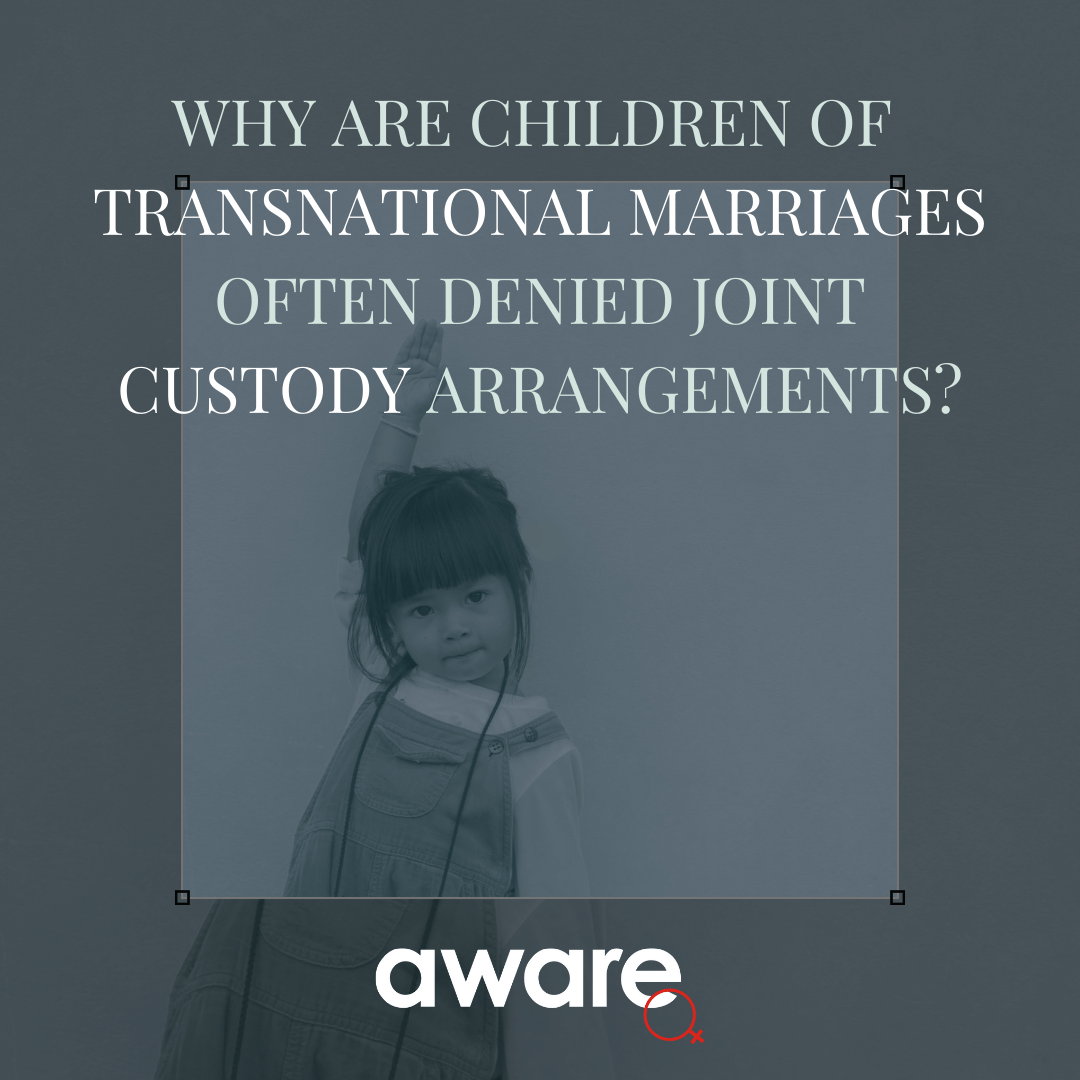-
Advocacy Theme
-
Tags
- Abortion
- Adoption
- Caregiving
- CEDAW
- Disability
- Domestic Violence
- Domestic Workers
- Harassment
- Healthcare
- Housing
- International/Regional Work
- Maintenance
- Media
- Migrant Spouses
- Migrant Workers
- Muslim Law
- National budget
- Parental Leave
- Parenthood
- Polygamy
- Population
- Race and religion
- Sexual Violence
- Sexuality Education
- Single Parents
- Social Support
- Sterilisation
- Women's Charter
Let’s protect the best interests of divorced transnational couples’ children
December 18th, 2021 | Children and Young People, Family and Divorce, Letters and op-eds, Migration and Trafficking, News

The Association of Women for Action and Research (AWARE) is heartened to see shared care and control being granted in more divorce cases last year (‘More divorced couples share care and control of their kids’). This reflects the courts’ prioritisation of children’s well-being, since both parents are able to make decisions about children’s daily needs while children can live with each parent.
The same principle should be extended to joint custody arrangements — enabling parents to make major decisions for their children in areas like education — especially for transnational couples.
Joint custody is less commonly granted to transnational couples, comprising a Singaporean citizen and non-resident: A local study on divorce cases filed to the Family Justice Courts from 2011 to 2015 found that while 76% of divorced Singaporean couples were awarded joint custody, it dropped to 50% for transnational couples.
The court’s decision to award joint custody in most cases between Singaporeans illustrates its belief that this arrangement is in the children’s best interest. This would also be in accordance with the Convention on the Rights of the Child, which Singapore acceded to.
Why then are children of transnational marriages often denied this option?
Certain immigration policies contribute to this gap. Though the Immigration Checkpoint Authority (ICA) clarified that the Long-Term Visit Passes (LTVP) of divorced migrant spouses will “generally” be renewed if they have custody of Singaporean children, those without custody face greater uncertainty since they require LTVP sponsorship from a citizen or Permanent Resident. Many ex-citizen spouses are unwilling to do so, putting their children at risk of separation from their non-resident parents.
This disparity in custody order outcomes also begs the question: Why do the assessments made about children’s best interest appear to be different when one parent is a non-resident?
Some may argue that citizen parents should be granted sole custody, since raising a child in Singapore is thought to be preferable for them. However, the child should have access to their non-resident parent’s care for their well-being through a joint custody arrangement.
If we truly wish to protect children’s best interests, transnational couples should be given equal treatment in court and granted joint decision-making powers in important aspects of their children’s lives, except in certain scenarios, such as when a parent is abusive.
To enable this, migrant spouses should automatically be granted an LTVP when their citizen child is born, to allow them to maintain a stable role in their children’s upbringing without having to fear separation.
Kimberly Wong
Research Executive, AWARE



